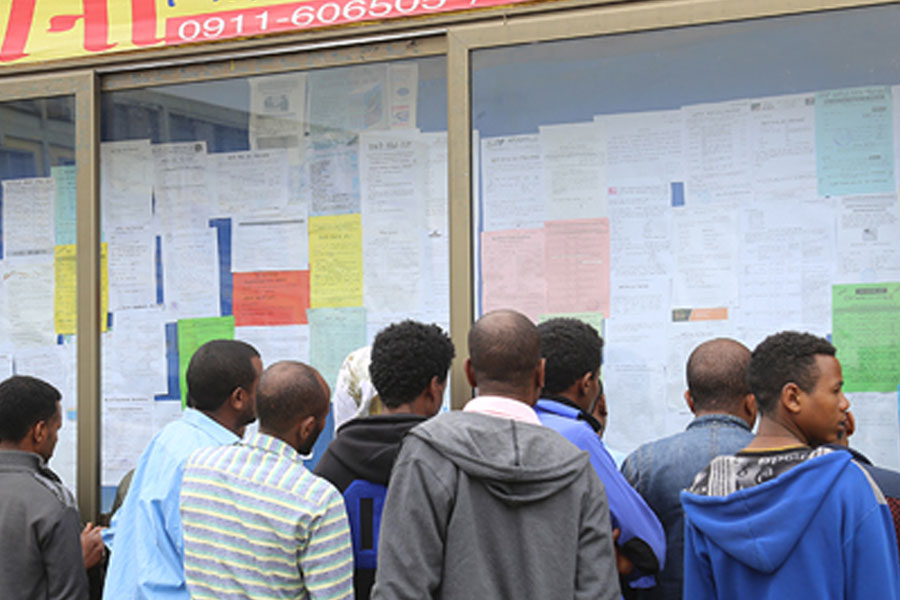
Jul 31 , 2024

The Birr has experienced a dramatic and turbulent shift against the US Dollar over the past week. Initially closing at a selling rate of 58.6 Br last week, it saw a drastic depreciation, amounting to a nearly 40pc drop within a week. This volatility is a direct consequence of the historic liberalisation of the exchange market, announced on Monday by Central Bank Governor Mamo Mehiretu, ending five decades of pegging the Birr to the US Dollar.
Data from top commercial banks — such as the Commercial Bank of Ethiopia (CBE), Awash, Dashen, Oromia, COOP, Abyssinia, Abay, and Wegagen banks — revealed a consistent upward trend in exchange rates, unveiling the mounting challenges facing the economy. From July 22 to July 31, the Birr's value steadily decreased, and the USD exchange rate climbed.
On July 29, Awash Bank quoted a cash buying rate of 74.7394 Br a dollar and a selling rate of 76.2342 Br. By July 31, those rates soared, with CBE reporting a buying rate of 80.0203 Br and a selling rate of 81.6207 Br — an alarming 7.06pc drop in just a few days.
The trend is not isolated.
Wegagen Bank recorded a buying rate of 74.7381 Br and a selling rate of 76.2329 Br on Monday, which skyrocketed to 77.7401 Br and 79.2949 Br, respectively, by July 31. Similarly, Oromia Bank's rates climbed from 74.7389 Br to 77.1280 Br for buying, and from 76.2337 Br to 78.6706 Br for selling during the same period.
Notably, today witnessed major leaps in exchange rates across various banks, hinting at a sudden shift in market dynamics and the outcome of the economic policy adjustments. Abay Bank’s cash buying rate surged to 79.0072 Br a dollar, while its selling rate reached 80.5873 Br. These dramatic changes reveal possible speculative activities in reaction to the announcements by Governor Mamo, freeing the Birr from the shackles of pegging with the dollar.
The weighted average rates over the three days since the announcement of exchange market liberalisation jumped to 77.6074 Br for buying and 79.3411 Br for selling, marking a substantial depreciation of the Birr.
Experts warn the ongoing depreciation would have serious implications for the economy. Rising exchange rates could lead to higher import costs, fueling inflation and squeezing consumer purchasing power. A weakening Birr could complicate Ethiopia's foreign debt obligations, which are largely in US dollar.

My Opinion | Sep 10,2022

Radar | Nov 14,2020

Fineline | Jun 08,2019

Fortune News | Oct 21,2023

Radar | Jan 19,2019

Viewpoints | Apr 26,2025

Radar | Apr 01,2024

My Opinion | May 23,2021

View From Arada | Apr 02,2022

Featured | Jan 07,2024

My Opinion | 132000 Views | Aug 14,2021

My Opinion | 128391 Views | Aug 21,2021

My Opinion | 126326 Views | Sep 10,2021

My Opinion | 123939 Views | Aug 07,2021

Jul 5 , 2025
Six years ago, Ethiopia was the darling of international liberal commentators. A year...

Jun 28 , 2025
Meseret Damtie, the assertive auditor general, has never been shy about naming names...

Jun 21 , 2025
A well-worn adage says, “Budget is not destiny, but it is direction.” Examining t...

Jun 14 , 2025
Yet again, the Horn of Africa is bracing for trouble. A region already frayed by wars...